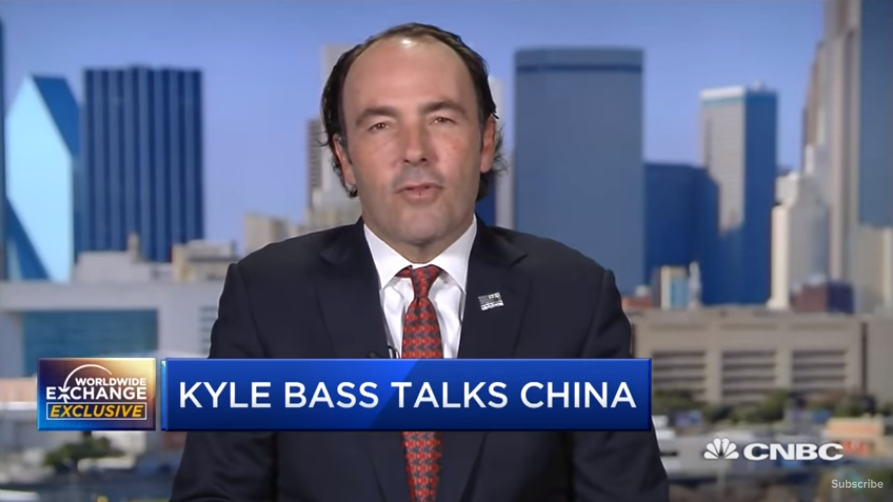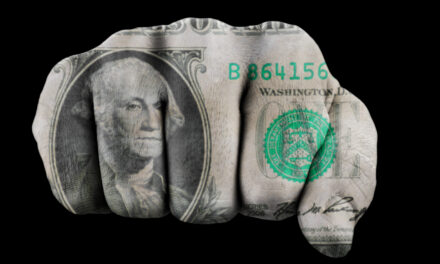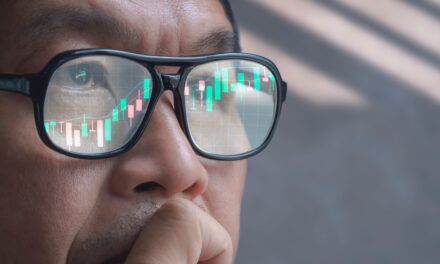With the G-20 summit set to begin Friday in Osaka, Japan, U.S. President Donald Trump is once again threatening to slap tariffs on $300-plus billion worth of Chinese imports, and famed hedge fund Kyle Bass said investors should prepare for exactly that.
Trump and Chinese President Xi Jinping are scheduled to meet to discuss trade, and investors are hoping the talks will result in deescalation of ongoing tensions. However, Bass said no one should get their hopes up in an interview with MarketWatch.
“I don’t imagine anything getting done,” Kyle Bass, managing director of Hayman Capital Partners, told MarketWatch in an exclusive interview. While both parties may agree to schedule new talks, in an effort to boost investor sentiment, Bass said it’s in neither Trump’s nor Xi’s interest to actually reach a deal.
“Xi believes he can wait out Trump’s tenure,” with the idea that he won’t be re-elected in 2020 and Xi does not face an election. Meanwhile, it’s in Trump interest to avoid any deal unless it includes Beijing agreeing to robust enforcement mechanisms and changes to Chinese law that would give a trade deal real teeth. “If Trump agrees to an imperfect deal he’ll be attacked from both the left and the right,” a situation the president will seek to avoid heading into his reelection campaign, Bass said.
Both sides, however, will see benefit in issuing communiqués that create the appearance of progress, to boost stock markets and buy time, he said.
Bass said Trump will essentially be forced to slap tariffs on the remaining $300 billion or so worth of imports after recent threats he’s made, including this morning on Fox Business.
“My Plan B with China is to take in billions and billions of dollars a month, and we’ll do less and less business with them,” Trump said in an interview with Maria Bartiromo.
“My plan B — maybe my plan A — my plan B is that if we don’t make a deal I will tariff, and maybe not at 25%, but maybe at 10%.”
Even despite the tariffs that have been levied the past year and a half, the market has still performed exceptionally well.
The S&P 500 hit a record high last week and the Dow is only about 1% shy of its October record.
Bass hit it big in 2008 after betting against the sub-prime mortgage crisis, and he said what should worry investors now is that the Chinese economy will slow as rising wages, insurance and shipping costs rob the country of its long-time advantage of being the world’s cheapest source of manufactured goods.
“It’s cheaper to make products in Mexico,” and ship them to the United States in many cases, he said.
As this advantage disappears, so has China’s ability to prop up its economy. When you combine central and local government spending, China’s budget deficits of 10% of its GDP at the same time its economy evolves into a trade deficit, rather than the surplus that’s marked the its rise.
He said China’s growth has created massive demand for foreign oil, basic materials and food, which must be purchased with U.S. dollars, turning it into a “twin deficit” country, where any further government stimulus will put significant downward pressure on the value of the renminbi while encouraging wealthy Chinese to do whatever they can to move their wealth to more stable economies.
China’s fossil fuel imports, for instance, have risen from $27.9 billion in 2015 to $46.5 billion last year, an increase of 67%, according to FactSet.
A hamstrung and dollar-thirsty Chinese government, therefore, will be forced to preside over an ever slowing economy, and this downturn will help drag the U.S. into a mild recession by the middle of 2020, Bass predicted.
So what’s an investor to do?
Gold and real estate, he said.
“It’s no secret why Bitcoin, which I don’t own, and gold are starting to do well again,” he said. “Everyone sees the writing on the wall.
“You have to own real assets, and the best thing is to be leveraged in real assets, like apartment buildings,” arguing that it’s an investment that will provide both steady income and will have the chance to appreciate in value as the Fed moves to lower interest rates in response.
Bass also predicted that the U.S. Federal Reserve will be forced to cut rates to at or near zero by the middle of 2020, making real estate more attractive. However, investors should be aware of possible new taxes and regulation with governments hungry for new revenue as a result of the impending recession.
“Property taxes are going to go up, transaction taxes are going to be implemented, as well as pied-à-terre taxes,” he said.
Finally, Bass also said he actually agrees with 2020 presidential hopeful Bernie Sanders, who revealed his plan to tax Wall Street to help pay off student loan debt.
“I actually agree with Bernie Sanders on something,” Bass said. “A (financial transaction) tax would be an interesting way to raise money on Wall Street. If you pay one-tenth of 1% on a transaction, it wouldn’t affect our lives at all,” he added. “But those people who do nothing for society, i.e. the algo traders, it would put the tax all on them.”




